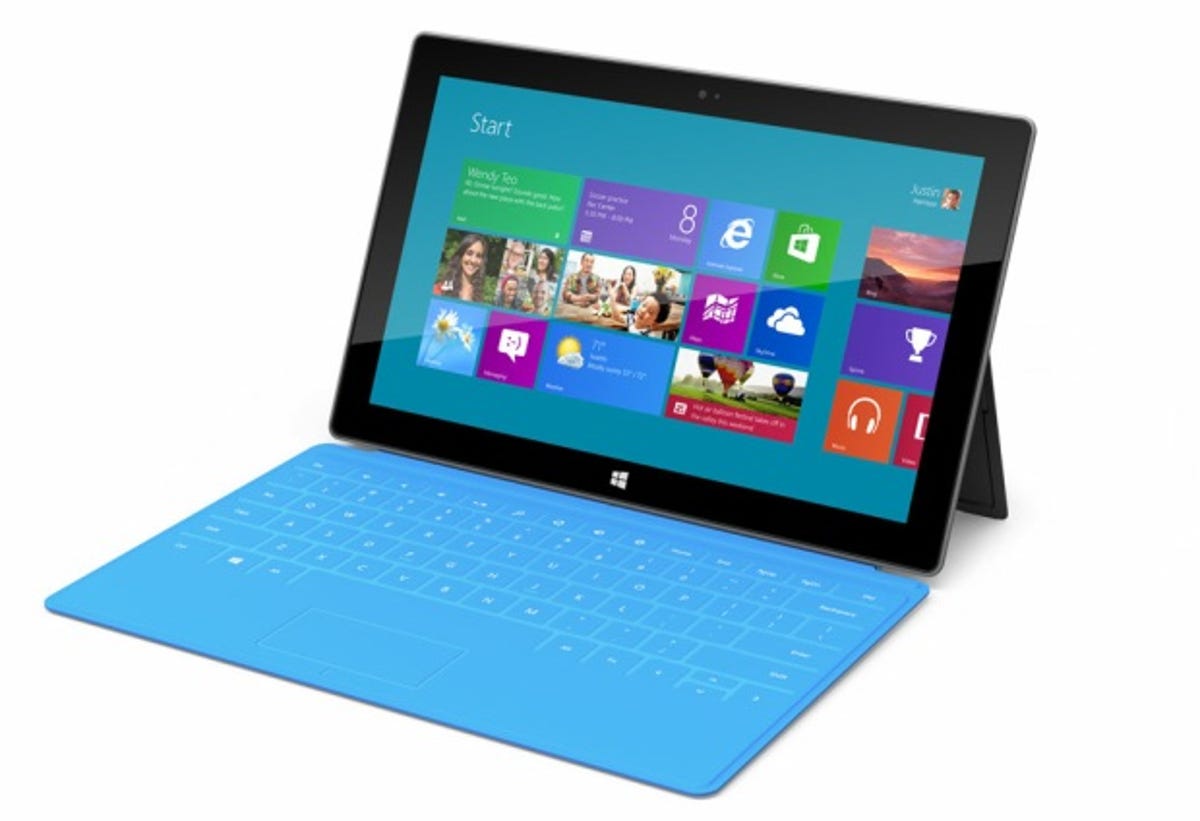
Are you stumbling bleary-eyed into the afternoon and just learning that Microsoft has introduced its own iPad-rivaling tablet? Then read this quick — it’s everything we know (and don’t know) about Microsoft Surface.
What is Microsoft Surface?
Surface is the name Microsoft’s chosen for its own-brand line of tablets, powered by Windows 8. There are two versions, both of which have 10.6-inch screens, and pop-out kickstands at the back.
The first Microsoft Surface model runs Windows RT, the tablet-based version of Windows 8, alongside an ARM processor. It’s 9.3mm thick and weighs 676g, with 32 or 64GB storage options.
The second Microsoft Surface Pro model runs Windows 8 Pro, and has an Intel Core i5 Ivy Bridge processor, as well as 64 or 128GB of storage. That hardware makes it a bit thicker at 13.5mm, and heavier at 903g.
The RT version won’t have access to the full Windows desktop, so you’ll be stuck with the touch-friendly Metro tiled interface. The Pro version gets the whole kit and caboodle, but will likely be more expensive.
Tell me more about the screen, if you wouldn’t mind.
A little pushy, aren’t we? There’s no word on screen resolution, but Microsoft is describing the regular version as boasting an ‘HD Display’ while the Pro edition has a ‘Full HD Display’. That likely means the starter option has a 1,280×720-pixel resolution, while the Pro should tout 1,920×1,080 pixels.
Both resolutions are decent, though not a patch on the new iPad’s 2,048×1,536 retina display. What we do know for sure is that the 10.6-inch screen has a 16:9 aspect ratio, which means it’ll be good for watching movies sans black bars.
What’s this keyboard cover thing all about?
Surface features a choice of two screen covers, which attach magnetically and fold down to reveal a keyboard. The Touch Cover has touch-sensitive keys and is 3mm thick, but with hardly any depth to the actual keys, it could be tough to know when you’ve actually pressed one.
A squishy-looking 5mm Type Cover is also available, and could offer a tad more physical feedback.
So how much will all this set me back?
Good question. Microsoft’s keeping cagey on the all-important price, only saying that it’ll come with a competitive price tag. I reckon that means at least £400, the same as the cheapest iPad.
Expect the ‘Pro’ version to cost a lot more. With the Intel processor and more storage, I wouldn’t be surprised if this beefy tablet cost about as much as an ultrabook — ie somewhere in the region of £800.
Why on Earth would I buy this instead of an iPad?
That’s the big question, and it’s one Microsoft hasn’t done a great job of answering so far. One confirmed treat is a touch-capable edition of Microsoft Office, which will greatly benefit those who need to quickly delve into spreadsheets as part of their job.
The Pro version will let you install any software you like (Photoshop, for example), but at a cost. The RT version will be cheaper, but you’ll be restricted to the cheaper apps on the Windows Marketplace.
More assurance that developers were beavering away on Windows 8 apps would have been welcome — as it is, the Surface will need to compete with Apple’s truly vast selection of high-quality apps, which could prove tricky.
I also want to know pricing, and more information on possible Xbox integration, which was rumoured ahead of the launch.
So when does Surface come out?
That’s something else we’re not clear on. The basic Surface tablet will come out at the same time as Windows 8 itself, which we’re expecting in the autumn. Microsoft has said the Pro version will follow approximately 90 days later, which could set it up for a Christmas launch. For now, however, that’s as precise as it gets.
We’ll be keeping you up to date on Surface as more details emerge, so stay tuned. In the meantime let me know what you’d like to see from Microsoft in the comments below, or on our Facebook wall.




